Conrad Colman: Doublehanded, non-stop around the world
Published on December 23rd, 2014
The Barcelona World Race is the first and only doublehanded, non-stop, round the world race, with the third edition set to commence on December 31. Eight teams will race IMOCA 60s from Barcelona to Barcelona, putting the capes of Good Hope, Leeuwin and Horn to port and the Antarctic to starboard.
The youngest skipper of the 2014-15 edition is Conrad Colman, who hopes the race will prove a useful stepping stone for his main goal, to compete at the Vendee Globe 2016-17. That has been his target since he got into solo and shorthanded ocean racing seven years ago. Almost on a sailing boat, Conrad grew up in New Zealand, before spending four years in land-locked Colorado Springs, where he graduated in Political Science and Economics and set up an innovative bike building business.
But since 2008 the Kiwi/American has called Brittany his home, has a French fiancée and has worked as preparateur, rigger, and sailmaker for IMOCA projects. Now here he is making ready for his second ocean race around the world, aboard Spirit of Hungary, alongside Hungarian sailing legend Nandor Fa (the first non-French to compete in the Vendée Globe).
Here Conrad provides an update…
How does a semi-pro bike racer in land-locked Colorado end up in the professional shorthanded sailing circuit?
After university and co-founding my own bike business, I opted to hang a right! If you want to explore the world, you can’t allow yourself to sit around. I sold my venture, bought a 31 feet catamaran in Italy and sailed it shorthanded to England. After that, I’ve set a course for the Vendée Globe, my ultimate goal. I don’t have a plan B. I’m a sailor because it’s the only activity in the world, which groups together all the elements I need in my daily life: sport, business, adventure, and project management.
What is you national allegiance then, you hold Kiwi and American passports but speak perfect French, live and work in France and embrace the French culture?
I am very proud to be all, and none of these things at the same time. I grew up a New Zealander but I am proud of being American too without being too chest-thumpy about it. Now, I am more French than most of the English speaking sailors in solo sailing, with the exception of Damian Foxall, in fact I think and dream in French a lot of the time. I see myself as someone who can take the best of each country and culture. Kiwis have the history of doing a lot with a very little. Team New Zealand embody that for such a long time, delivering world beating performances with a fraction of the budget. The American side is big, exciting and innovative. And culturally a lot of both of these sides are found in Brittany.
What have been your progressions to get to this stage?
Like a lot of sailors before me, I began with the Mini 6.50 Class. I did my first solo transatlantic on a Mini in 2009 before moving up into the Class40 the following year to compete in the Route du Rhum. From there I linked onto the Global Ocean Race, a Class40 double-handed round the world race with stopovers. We won four of the five legs of the race, each time with a different co-skipper, and secured outright victory.
But the Global Ocean Race was not without incident.
My best and worst memory are intimately linked. On approaching New Zealand, on the second leg of the Global Ocean Race, my co-skipper, Sam Goodchild, fell overboard without a lifejacket. After 35 minutes of anguish, carrying out a search in a swell, with 35 knots of breeze, fog and virtually zero visibility, I managed to locate him. It was a hellish 35 minutes, thinking of the possibility that I could lose him. There are no words that can describe that. Even though recovering him was indescribably satisfying, I never ever again want to feel that I have someone’s life in my hands
You are joining Fa after his planned co-skipper cancelled less than a month ago. Having never raced together, how does that influence the way you will approach this race?
It’s true. But I have spent so much of my racing life sailing downwind, the Route du Rhum, racing round the world and so on, and so we can do that. But I am a big believer in getting the potential problems with manouvres out of the way. I truly believe that to be a competitive sailor you need to have all of your manouvres as second nature, so you can fully exploit your routing. You need to be able to react when you have to. So we plan to go out and doing 20 tacks or 20 gybes, back to back to back. Next week we hope to have the time to do that. So I will be walking around like a Zombie after that!
How would you describe your alliance?
We are both outsiders in the sense that he has a fantastic legacy in being the first non-French skipper to finish the Vendee Globe and I want to be the first Kiwi/American to do the Vendee Globe. We have both shaped our life around this race. Neither of us have ever worked in a big team, either as a skipper or a preparateur. We are both very flexible, very hands on and so I think that is a great foundation which might not immediately be apparent to observers.
We are the youngest guy in the race and the oldest, we have someone from New Zealand-America and someone from Hungary. Our native languages are about as far apart as you can get, and yet the way we approach things is very similar, we are both very practical and work very well together. Quite by chance we have the roots of a really great union.


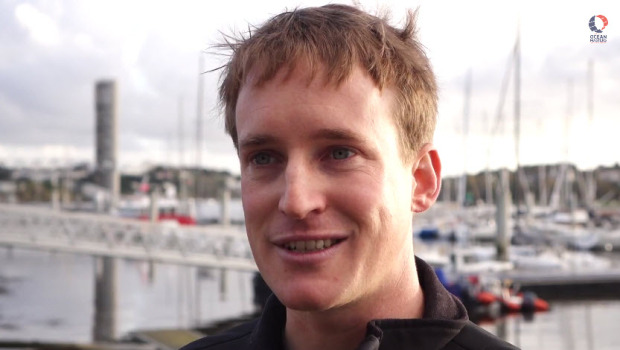


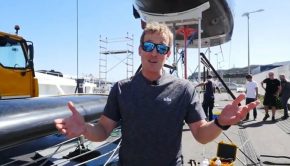
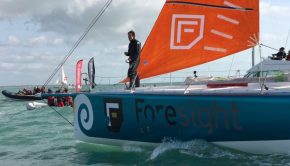
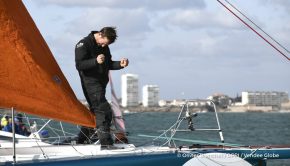
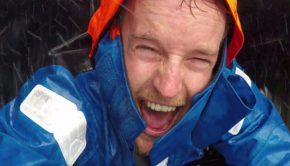
 We’ll keep your information safe.
We’ll keep your information safe.